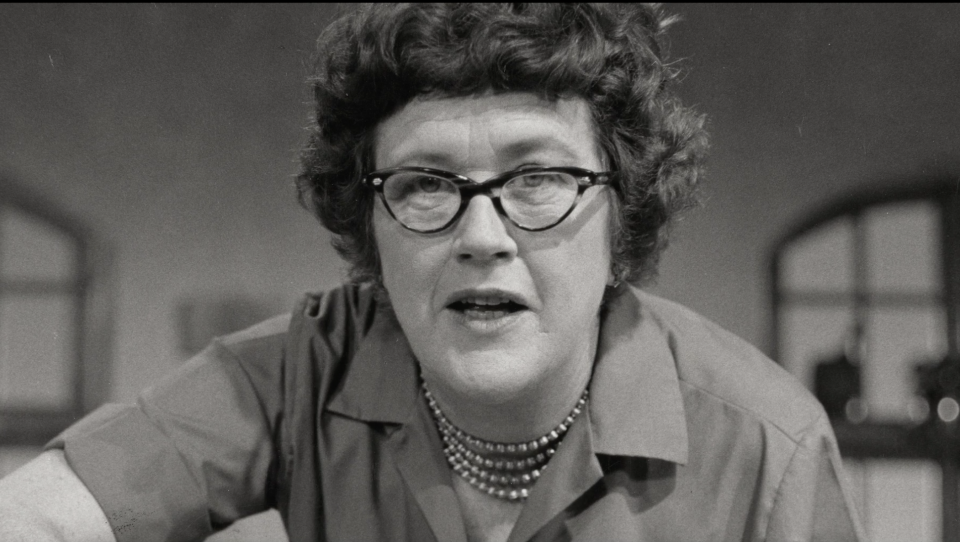Film directors Julie Cohen and Betsy West are well-known for documenting the lives of trailblazing women like Supreme Court Justice Ruth Bader Ginsburg in “RBG” and civil rights activist Pauli Murray in “My Name is Pauli Murray.”
They joined Amy Traverso, co-host of GBH’s “Weekends With Yankee” and “ You & Julia: At Home” over Zoom to talk about their new documentary, “Julia,” and what it was like to trace Julia’s footsteps in France, film a buttery rendition of sole meunière and learn about Julia’s enduring legacy on public television.
“Julia was revolutionary,” West said. "She's somebody who really had a kind of a Jimi Hendrix-like ‘wow’ impact on the world."
Here are some highlights from the conversation.
Amy Traverso: I'm here in Boston, virtually at GBH. How much did you know about public television and GBH before you started the film?
Betsy West: I am a New Englander, so I grew up watching Channel 2, WGBH, and certainly saw Julia in the 1960s. Julia stood out on public television for being just so profoundly entertaining. When I got older and went into the business, I realized what a foundational role GBH plays in the PBS universe, and Julia kicked that off.
WATCH: Julie Cohen and Betsy West talk Julia Child
Traverso: You really followed Julia's footsteps around the world for this. I, on a smaller scale, have had the opportunity to do that a bit with our show, "Weekends with Yankee," which is a New England travel show. Was there a favorite part of filming in her footsteps that really stuck out to you?
West: We spent about a week in France, two years ago. I mean, first of all, we're in Paris in October. It's so beautiful, and we're seeing the apartment where Julia lived, and then going to Rouen, and watching the chef there make the sole meunière. It was incredible.
Julie Cohen: When Julia moved to France and dove into the French culture and food, she was just completely enchanted by that experience, which happily overlapped with her honeymoon years with Paul, and I think we felt a little of that sense of enchantment.
There’s a fairly close-up scene in the film where you're seeing the sole meunière being prepared, and we were in that kitchen — the audiences either gasps or laughs when they see the amount of butter that is being poured on the top of that one slice of fish, and we really felt that. It's just a fish, but it's magic.
"When Julia moved to France and dove into the French culture and food, she was just completely enchanted by that experience."Julie Cohen, Director, "Julia"
Traverso: Another thing that struck me in the documentary is age and women of age. In the film, you see this parade of older women at ages that are not as often represented in film and television, and they look beautiful, and they look dignified. Everyone was lit beautifully. I just wondered if that was an intentional choice.
West: Yes, obviously. We wanted people who could bring Julia to life, who really understood Julia.
Cohen: Betsy and I both came from the network commercial television world where the unspoken and sometimes spoken rule is don't put anyone over 50, particularly a woman over 50, on camera. I think the biggest revelation for us, moving into the documentary world, was getting into having the opportunity to start interviewing people in their eighties and nineties, of which there are actually quite a number in our film, and seeing what spectacular interviews that that demographic make.
"Julia" opens in theaters in New York and Los Angeles Nov. 12 and nationwide on Nov. 19.






